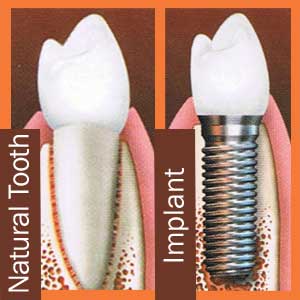If you have lost a number of your teeth due to injury, decay or disease, you may be considering dentures to replace your natural teeth. There may be more types of dentures available than you originally thought. Denture technology and procedures have improved dramatically over the years, and some of these new dentures, like snap-in dentures, may be a better option for you. In this blog post, we’ll discuss the advantages and disadvantages of snap-in dentures, and how these compare to traditional dentures.
Snap-In Dentures vs Traditional Dentures
Snap-in dentures, also called overdentures or denture implants, are different from the traditional dentures you’re probably familiar with. These differences give snap-in dentures several advantages over traditional dentures, as well as some disadvantages.
Traditional Dentures
Traditional dentures are made from molds of your mouth, and they’re held in place by suction and sometimes with denture adhesives. These are removable, and they sometimes slip or become dislodged while you eat, laugh, sneeze, cough or talk. Since traditional dentures aren’t fixed to the jawbone in any way, the jawbone tends to deteriorate over time from a lack of pressure. This causes the mouth to change shape, and the dentures start to fit more loosely over time.
Snap-In Dentures

Some snap-in dentures are still removable, so you can take them out at night for cleaning, and store them in water as you would with traditional dentures. Other snap-in dentures can only be removed by a dentist, and you would clean these dentures just like your regular teeth.
Pros and Cons of Snap-In Dentures
Some advantages of snap-in dentures have probably already entered your mind. Many patients prefer snap-in dentures since they don’t slip and slide like traditional dentures. There are a few other advantages, as well as some disadvantages to consider.
Pros:
- No slip: Snap-in dentures won’t slide around while chewing or talking, like traditional dentures sometimes do.
- Reduce bone loss: Since snap-in dentures are bonded to the jawbone, these dentures imitate natural chewing, and help to reduce bone loss.
- Better fit: Since the jaw bone and mouth changes shape less with snap-in dentures, they fit more comfortably.
Cons:
- Surgery: The process to fit snap-in dentures requires surgically implanted metal posts. You’ll also have to let the surgery site heal for up two to six months before your actual snap-in dentures can be placed.
- Cost: Since the process to apply snap-in dentures is more involved, these types of dentures cost more.
How Much Do Snap-In Dentures Cost?
Snap-in dentures are more similar to natural teeth than traditional dentures. Since this process requires surgery, it’s more expensive than traditional dentures. There are many factors to consider and each patient is different. How much snap-in dentures cost will also depend on your location, since operational costs are much higher in some areas.
All of the following can affect how much snap-in dentures cost for you:
- You are getting both upper and lower dentures, or just one of these.
- Surgical complications or special considerations
- You require multiple implants to keep the dentures secure.
- Decay, bone loss or other conditions must be treated first
- Your location and your dental office’s overhead costs
- Your medical or dental coverage
Considering all of these factors, there are great variations on how much snap-in dentures cost. Estimates range from $3,500 to $5,500 per arch, and other estimates as high as $40,000. Some medical or dental insurance plans may also help to cover snap-in dentures.
If you’re interested in snap-in dentures but you’re uncertain about the costs, talk to your dentist or oral surgeon. Dental payment assistance can also help to make the costs of snap-in dentures more manageable.
